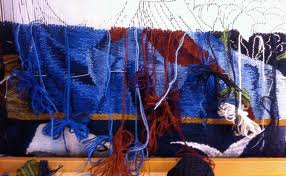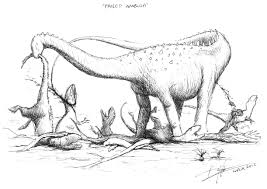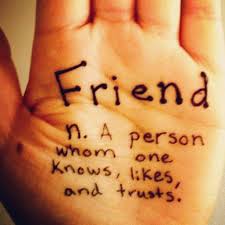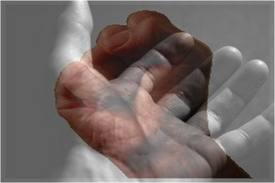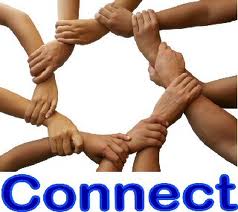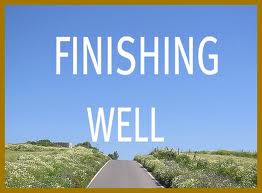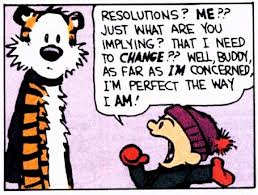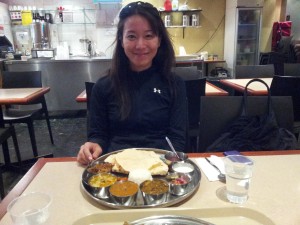To fully understand God’s idea of church, we need to see the Church through the bifocals of an invisible yet visible tapestry that God is weaving. The hidden dimension or structure of the tapestry is often invisible to the naked eye. It is mystical, and though very real, hard for us to see clearly, and hard for us to define. The Church is one thread in this larger tapestry of the Kingdom taking shape.
As human beings, we need the invisible God to express Himself in the earthy and tangible human experiences of life. Everyday God is revealing His invisible nature through the threads of joy, intimacy, beauty, justice, creativity, sorrow, and pain woven into our human activities of work, play, feasting, making love, a smile, a song, a death, and the new life of a baby being born. All of life is sacred and holy when one has a God saturated view of the world.
Anytime the body is separated or disconnected from the spirit, or the spiritual is elevated over the natural human experiences we are falling into the ancient heresy of Gnosticism, or a Greek Platonic worldview of dualism in our thinking and acting. These faulty worldviews compartmentalize and fragment the world into the secular and sacred, a closed or open system, and a material or spiritual reality detached from one another.
A more healthy worldview connects and intersects the lines between the spirit/body, closed/open systems, and visible/invisible realities. There is weaving together of a tapestry that paints a picture of heaven coming here on earth. It makes room for porous borders.
One of the metaphors in the Bible for the Church is a body. The Church is the flesh and blood through which, albeit imperfectly, the world around us can see, smell, and touch God. The Church is to be both an open system welcoming all while colliding with closed systems that separate the ‘in from the out.’
The Church is to show a third way where there are permeable boundaries like a cell, yet a clear nucleus that is not compromised. Our nucleus or DNA is Jesus and His Kingdom,and not on the table for negotiation. With Jesus and His Kingdom as our center, we invite others to come in and shape how we reflect Jesus and His Kingdom.
What are these best practices of the invisible yet visible tapestry of Church and His Kingdom coming where God can be seen, smelled, touched, and tasted?
The Invisible Tapestry of Church: Practicing Inclusion and Incarnation!
The Nicene Creed, a liturgy recited in churches as a confession of faith states: “We believe in one holy Catholic and Apostolic Church.” What in the world does that mean? The word ‘catholic’ means the universal Church, and is not referring to the Catholic denomination or organization of the church with its HQ in Rome. Apostolic means we are a ‘sent people’ on the Mission of God.
Who is part of, and what is this universal, mystical Church? What is God’s Mission and how do we get to be in on it?
The mission of the circle dance of the Trinity has been to put out the invitation that we are all welcome to be apart of their perfect community of love. Jesus came as God with skin on to show us who God really is, and what He is really like. (2 Cor. 4:4) Spirit became flesh. The Divine came in human form.
In the greatest act of voluntary love and sacrifice, Jesus gave His life on a cross and then rose again. In this penultimate demonstration of His love and ‘upside down power’, He defeated evil, death, and sin by overcoming violence with non-violence. This is the core ethic of His upside down Kingdom. He wants to restore all of creation back to His original order of beauty, peace, and life TO THE FULL forever.
Those who have said ‘Yes’ to the invitation from Jesus to be reconciled in their relationship with God and to enter His upside down Kingdom belong to a huge international family that goes beyond religious, tribal, and denominational associations such as the Baptists or Anglicans. We will be shocked one day when we see who is in the the Family of God. There are many who have said ‘Yes’ to King Jesus and are a part of His Kingdom, but don’t belong to the religion called Christianity or go to a visible church!
Jesus hung out with the misfits, outcasts, and rebels in His day. He invited prostitutes, tax collectors, blue collar fishermen, and even terrorists of His day (the Zealots) to come into His Kingdom. We need to be an inclusive community that embraces all people into our community. The borders are porous and permeable.
Inclusion means we give up the right to be the judge of who is ‘in and out’. It also wrecks the need in all of us to keep score and transforms our inherent need to build our own ‘kingdom’.
How do we practice inclusion?
There is so much competition in church culture. If we are honest most of us church leaders want to get people into our church so that we feel successful. Now there is nothing wrong with wanting people to become part of our local church community and wanting our church to grow. Yet we often put the cart before the horse so to speak. If we start with a Kingdom mindset or agenda we see the beautiful and colourful tapestry of the Kingdom first. Our local church community is just one thread. Our priority is to see where God is at work and get in step with where His Kingdom is coming.
We will want to work together with all unique expressions of church in serving and loving people in our neighborhoods. We will begin to see, even if faintly or dimly, the invisible tapestry of the Church being woven together into the larger tapestry of His Kingdom. The lines get blurred and it doesn’t matter whether folks go to X or Y expression of church. We see the Church as one. We realize we are simply stewards and own nothing. We freely give money, buildings, and even people to help another church grow. When one wins we all win!
We will also build relationships and partnerships with folks outside the church who sing and live the Kingdom songs of justice, peace, beauty, reconciliation, stewardship of creation, generosity, and care for the poor. These are all liturgies and lyrics of the Kingdom song being sung in and around us. We will work together with any Kingdom ambassadors or agents to see a taste of heaven come on earth. This may mean building homes for the poor with a Muslim community or serving side by side with agnostics to advocate for housing for the homeless.
Incarnation starts by moving into a neighborhood and immersing ourselves in the life of the neighborhood. It means fighting fragmentation with integration by moving towards shopping, playing, and even working in our hood if possible. We engage in our neighborhoods by serving wherever there is a felt need by using our gifts and talents to make our neighborhood a better place to live. It means helping connect people to God and one another so that they can live life to the full.
I’m slowly learning that I am one of the pastors in my neighborhood parish in which there is a hidden tapestry of the Kingdom of God and His Church being woven together. My job is to be a connector, cheer leader, and coach. I view my whole neighborhood as my parish or church. When I coach soccer I am as much a pastor as I am on a Sunday morning at a church gathering.
“People are generally not turned off to Jesus, but the packaging He comes in. We the church need to be Good News before speaking the Good News. Words are shallow if not backed up with living what we say. Through serving and voluntary sacrifice we will have the authority to say a few words. When we love some people and a place we will have true authority to bring about transformation!
In my next blog, I share on the best practices for weaving the tapestry of the church visible.
